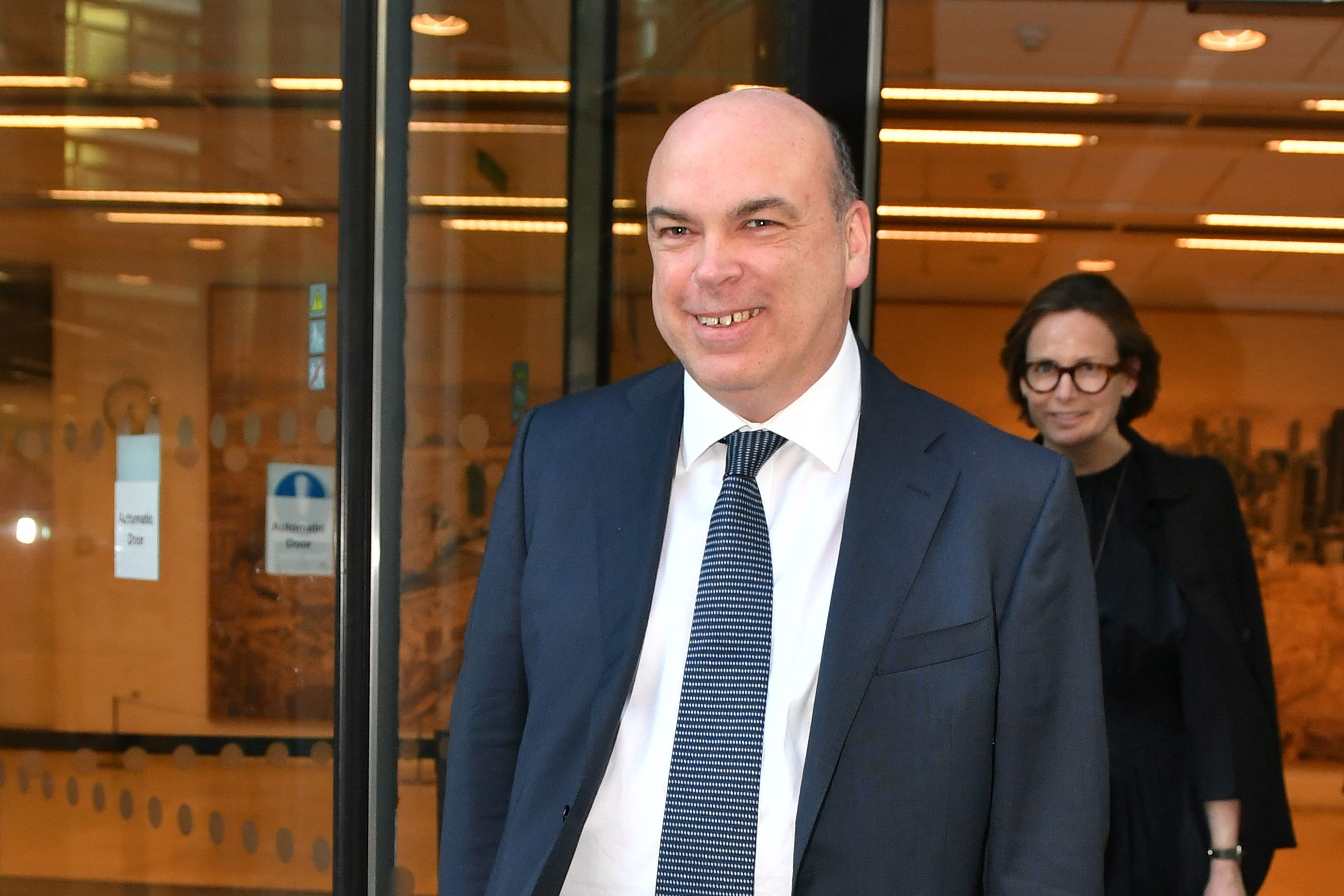Tycoon fighting extradition to US accused of making ‘blinkered assessment’
Mike Lynch has appealed against extradition and two judges are considering his challenge at a High Court hearing in London.

Lawyers representing the US government have accused a British technology tycoon fighting extradition of making a “blinkered assessment” of the situation.
Mike Lynch has appealed against extradition to the US and two judges are considering his challenge at a High Court hearing in London.
Lord Justice Lewis and Mr Justice Julian Knowles are expected to finish hearing arguments on Thursday.
Then-home secretary Priti Patel approved Dr Lynch’s extradition to the US, to answer criminal fraud charges, in January 2022.
A judge at Westminster Magistrates’ Court had ruled that Ms Patel could decide whether to order extradition.
Dr Lynch is appealing against that ruling by District Judge Michael Snow.
Lawyers representing the US government say Judge Snow made “correct” decisions.
A barrister leading Dr Lynch’s legal team on Wednesday told Lord Justice Lewis and Mr Justice Julian Knowles that Judge Snow had made “wrong” decisions.
Alex Bailin KC said Judge Snow had been wrong to conclude that extradition was in the public interest.
He said the appeal should be allowed and told the two judges that the Serious Fraud Office would determine whether to prosecute in the UK.
A barrister leading the US government legal team on Thursday said Dr Lynch was arguing that the UK was the most appropriate jurisdiction.
Mark Summers KC told judges that was a “blinkered assessment”.
“The applicant portrays this case as striking in being solely UK-centric,” Mr Summers told Lord Justice Lewis and Mr Justice Julian Knowles in a written argument.
“It is anything but.”
He added: “The evidence establishes that the USA was integral to all aspects of the alleged fraud.”
The applicant portrays this case as striking in being solely UK-centric - it is anything but
Ms Patel’s decision to approve extradition came after Dr Lynch lost a multibillion-dollar fraud action, at the High Court in London, over the sale of his software company Autonomy to Hewlett Packard (HP) in 2011.
Dr Lynch had been accused of deliberately overstating the value of his business before it was acquired by the US technology giant.
HP had sued Dr Lynch and Autonomy’s former chief financial officer, Sushovan Hussain, for about five billion US dollars (£3.7 billion), following its purchase of Autonomy, which had a base in Cambridge, in the UK, for 11.1 billion US dollars (£8.3 billion) more than a decade ago.
A High Court judge who oversaw that trial said HP had “substantially succeeded” in its various claims against the two men, but is likely to receive “substantially less” than the amount claimed in damages.
Ms Patel had wanted to consider Mr Justice Hildyard’s ruling on HP’s claim before making an extradition decision.
Dr Lynch has denied all charges against him.
Lord Justice Lewis and Mr Justice Julian Knowles have been told that the civil litigation overseen by Mr Justice Hildyard had yet to conclude.
They heard that there had been no decision on the amount of damages and said they did not know whether Dr Lynch was going to appeal.
Dr Lynch has signalled his intention to appeal against Mr Justice Hildyard’s ruling.
Mr Summers told Lord Justice Lewis and Mr Justice Julian Knowles that Autonomy was a public software company with dual headquarters in San Francisco, US, and Cambridge, England.
He said about a third of shares were held by individuals and entities throughout the US and about two-thirds of Autonomy’s staff were employed in the US.
Mr Summers said HP had suffered loss and that loss “was enormous”.
Bookmark popover
Removed from bookmarks